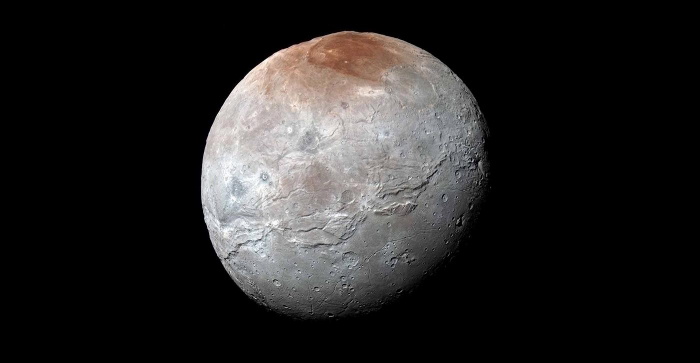The dwarf planet could be wrapped in a gassy insulating layer, which keeps water beneath its surface liquid, according to new research.
If true, that might mean the universe is filled with far more alien oceans than we had previously realised, the new study found. That would make the possibility that some of them are home to extraterrestrial life far more likely.
When Nasa's New Horizons mission flew past Pluto in 2015, it sent back the first ever close-up images of its surface. They showed that the dwarf planet looked strange: it seemed to have a large basin near its equator, for instance.
By examining its location and other details, scientists came to believe there is an ocean lurking beneath the ice shell, which is thinned at that basin. However, such a possibility shouldn't be possible given the age of Pluto, which is so old that its ocean should have frozen and the ice shell around it would have been expected to flatten down.
Now researchers from across the world have proposed a new explanation for that warm subsurface ocean to sit alongside the dwarf planet's frozen and bumpy shell. It could be kept that way by a special layer of gas that is serving as insulation, they suggest.
The researchers tested that possibility in computer simulations that replayed a timescale of 4.6 billion years, when the solar system was forming. They created two different scenarios, allowing them to compare that process with or without the insulating layer of gas.
The two simulations showed that without the insulation, the sea would have completely frozen hundreds of millions of years ago. With one, however, it hardly freezes at all and the water would still be liquid.
Those same layers of gassy insulation could be found throughout the universe, on similar objects to Pluto, researchers said. That might mean that other places like it – where they are relatively large but not very well heated – could also serve as homes for alien life.
"This could mean there are more oceans in the universe than previously thought, making the existence of extraterrestrial life more plausible," Shunichi Kamata of Hokkaido University, who led the team, said in a statement.
The Independent
More about: Pluto
















































